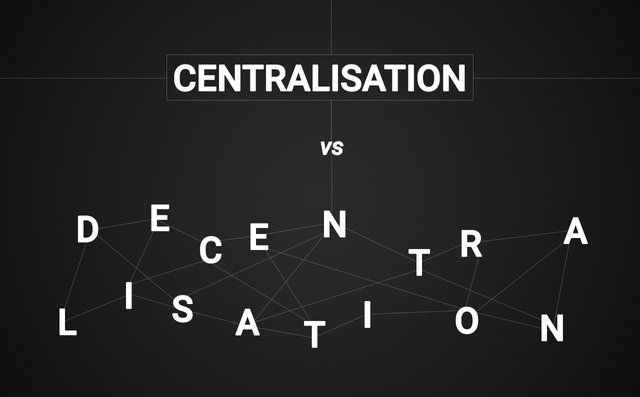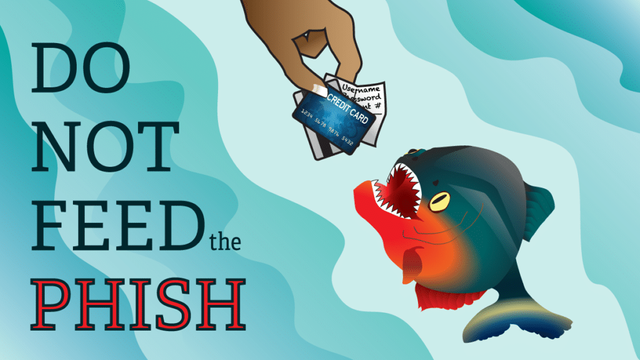Decentralization and Subjective Expectations
There is this idea spreading around lately that decentralization implies that people should be able to commit crimes with total impunity.
While it’s hard to find any correlation between the two things, there are some who seem pretty adamant that one thing cannot exist without the other.
Let me give you an example.
Let’s take the recent outrage in some sectors of the crypto community after some Block Producers of EOS decided to freeze seven accounts for fishing and scamming people.
Many have been very vocal about the subject, most notably Charlie Shrem from whom I’d like to share this exact quote:
“Protecting” “punishing”. No.
It’s clear that like many others he’s taking offense to the BPs for apparently “protecting” the users and “punishing” the scammers. And it’s a totally valid and respectable opinion.
Me personally, I wouldn’t lose sleep about some scammers “earning” less money because their phishing scheme is caught.
However, this raises an interesting question:
What possible relationship exists between decentralization and criminal impunity?
Take Uber for example, one of the first decentralization wins we’ve seen in terms of mass adoption.
In Uber, everyone can download the app and get a ride to whatever they want, granted that there is another person to take them there.
By the same token, everyone who has a car and wishes to earn some extra money can create an account and start driving without needing to go to any central authority for permission.
And without needing to wait anywhere from weeks to months for approval from another human being. Not to mention the exorbitant prices these centralized licences cost in comparison to a decentralized app.
Now, if some user were to commit a crime (robbing the passengers, sexually assaulting the passengers… Etc) their account would be terminated, and that doesn’t make the use of Uber any less decentralized.
In fact, decentralization and criminal impunity are two entirely different animals.
In LocalBitcoins for example, you can choose to trade with any person you want at any rate you both agree on.
LocalBitcoins of course warns you to take some precautions such as prioritizing trusted users, never releasing the Bitcoin until the money has arrived... So on and so forth.
However, scams still exist and LocalBitcoins does block the scamming accounts when that happens.
You see, this doesn’t make the system any less decentralized, it just doesn’t protect the scammers, that’s all.
Plus, it’s hard to comprehend the wisdom behind incentivizing the scammers at the expense of everyone else.
But let’s see another example:
In AirBnb there are on occasions some false advertisements. Some scammers post stolen pictures of some cool houses and create fake listings to scam people.
These cases are always bound to happen due of the decentralized aspect of the platform. Everyone can create an account and rent a place, and everyone can create a listing for their home and rent it out.
Just like the aforementioned example, AirBnb also warns you to take some preventive measures (Prioritizing verified listings, taking precautions before sending money... Etc).
But whenever some of these scams get exposed, AirBnb doesn’t hesitate to take those listings down. With reason on their side I may add.
And when that happens, you don’t see people being outraged that AirBnb is hurting the scammers ability to make money out defrauding people.
Why do some people get offended if some phishing sites were taken down, and in the process getting outraged that some bad players have lost their ability to scam users?
This is pure speculation, but I think that part of it is that there is an ideological factor in play.
Some people view decentralization as a certain type of anarchy, maybe their understanding of it and what it means to them. While others may view it from a more voluntaryist spectrum.
On one side, we have you would call a Wild West type of anarchy. A place where the worst elements of society could kill some cowboy, rape his wife and daughter and take all his properties and belongings… Then they get to walk Scot free.
The people who lean towards this type of ideology may never hurt a fly themselves nor have a single mean bone in their body, but it’s the primary idea that all rules and consequences must be abolished.
On the other side we have voluntarism. Where you interact with people in a voluntary basis without recurring to force nor deceit.
You are still free, you just don’t harm any person nor their private property.
And there’s where the two things start to diverge.
Closing Thoughts:
We all want to see the blockchain adoption grow and attract more users, right? So wouldn’t it make sense to protect the ecosystem, to make it stronger, to make it easier to access for the wider public and gain an added element of trust?
At first, we all seem to row in the same direction, but then the philosophical element gets in play and everyone wants to see their pre-existing ideology implemented... That’s when the word “decentralization” starts to gain a different meaning for everyone.
But the question remains, what possible need is there to attach criminal impunity to decentralization?
Looking forward to read your thoughts on the subject.






Protecting the ecosystem is only possible if everyone checks the available backgrounds of their contacts, relying on honest and proven reputation, or at least lack of ill intent history.
A person who doesn't care wether they're dealing with trustworthy contacts is part of the problem, and we should treat them as such.
Please check out my post about the SBD price drop.
Now days this system robbed by scammers many people lose their money for investing in this small currency
But your article have full pf lesson about decentalization
Thank you @ommy50, I'm glad you liked it. I hope there is more preventive measures to reduce these scams, hopefully it will add some trust too.
Thanks for understanding my opinion
My pleasure :)
hehe lol
it is scary to me.. ow!!
haha lol ;)
Haha let's hope the fear vanishes soon :)
hi sir .....if you can ...i need you follow ..please....
...thank you so mutch ...anyway.......
The problem exists in that, if there is a ban hammer, it gets used.
And suddenly, you are now in danger of losing everything you built.
Such is happening on ThemTube right now.
What starts off as "noble", "getting rid of the bad guys", turns into getting rid of people you don't agree with.
Thus, if the ban hammer exists, then honest person feels the sword of Damocles hanging over them, and the dishonest person just knows that hey, at some point i will get caught, then you just start another.
That's true. I hope it never goes that way.
In that case, maybe a solution that would comfort anybody is to keep the freezing and investigations strictly to phishing and scams and related issues? And draw the limit there...
I understand your concern, and these things certainly happen when the human factor gets in. But maybe a set of agreements that is detailed beforehand i.e: Phishing scheme. Maybe that would make everyone more comfortable... I don't know.
And aside from that, there are people who just don't like to see the users "protected" and the criminal "punished". As Acidyo was recalling in a comment earlier, some people were just pissed off that Ethereum protected people's ETH from the hacker. They took offense at the hacker not being able to get away with stealing people's money... In their eyes, he should walk scot free.
This is what makes this governance thing so interesting, it's like a massive human experiment. I don't know the answers, that's for sure. I have an opinion and tomorrow it can change if I find some very compelling data, we're all in uncharted territory here.
Personally, I just try to make sure that my opinion isn't wrapped around a pre-existing expectation.
That's why I thank you for your comment. This is totally a valid concern, because things can go from noble to draconian when the human element is involved. I wonder if we could get something in the middle.
Like instead of the wild wild west example I mentioned, maybe try a little voluntarism. There are some small basic rules which is to not harm any person, nor their property and it remains that way.
Either way, this will be very interesting to watch and I hope it ends up for the best.
It is the same solution that is needed here on Steemit.
We need opt in groups and lists.
Made by anyone, followed by anyone (with privacy settings)
Then we can limit our view of steemit to that which we wish to see.
Or we can follow some of the best curators out there.
Or we can exclude all of the "the-alien-blacklist" list.
We need a lot more controls on what we see, and how we sort it.
If it is going to be a law in the steemit sphere, then it needs to be hardcoded into the chain. The lines have to be clearly known, and the triggers have to be set in stone.
Because, if you are an administrator on a bulletin board, half your time is banning trolls, and the other half is unblocking someone who was just stupid.
In the future, the interwebs will be different. Everyone will have their own private "wall" server. And sharing info will be to those you allow to view your wall. Completely in your control.
Those walls you want to see are all under your control. With an actual really great AI that can help filter and find stuff based on all kinds of parameters, including your mood.
There will be no one blocking anyone from speaking. But, you can ignore everyone.
The problem exists in that, if there is a ban hammer, it gets used.
And suddenly, you are now in danger of losing everything you built.
Such is happening on ThemTube right now.
What starts off as "noble", "getting rid of the bad guys", turns into getting rid of people you don't agree with.
Thus, if the ban hammer exists, then honest person feels the sword of Damocles hanging over them, and the dishonest person just knows that hey, at some point i will get caught, then you just start another.
The recent EOS freezing of accounts and the people rallying to complain about it reminded me a lot of what happened when the DAO got hacked and the Ethereum saved the Ether from the hacker. Those same people complained that its not true decentralization if it is possible to save people who lost their coins and thus ETC was created as a side effect.
In a way I see their concern, they might be thinking "okay they did this to save a few investors, but where will it stop?" Will they start doing this more often for other scenarios in the future? This was only about 20k EOS comparted to the hundred thousands of Ether back in the day so it might be that the low amount made an even bigger impact if they decide to freeze the mainnet for that.
Its still a pretty weak point in my opinion, I am sure that if people were able to save all the BTC of investors who lost their coins to Mt. Gox they would have done the same.
It's quite a difficult situation.
I for one am glad how safe my funds seem on Steem as they have excellent ways to recover stolen accounts.
You raise a pretty interesting question here, well said! If people were able to save all the BTC from Mount Gox back in the day, then the trust in BTC would've probably been much higher and the adoption much faster as well, and that would've probably made it much stronger.
Because that came at a time where BTC was much more vulnerable than now.
However, I can't know this for sure as there were many variables in play.
From a purely practical point of view, I don't understand why people get angry if the users are protected, like the ETH example you just mentioned. At the same time, I understand that everyone has different points of views and preferences.
And like you, I'm happy with the account recovery in steemit :) The more secure the users are, the better!
its a very helpful post, thank you.
Thank you :)
we all want to get rid of this centralised work they simply don't want us to grow they keep pushing us backward
Yeah exactly! I couldn't have said it any better haha
hahah glad to know that i comment something meaningful well that came straight from the mind lol
Decentralization and crime ... two very different animals. Totally agree. I liked the LocalBitcoin example. regards